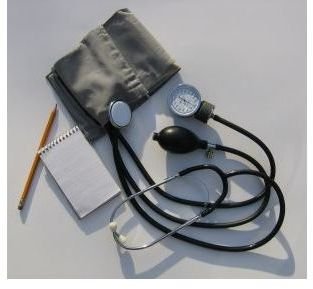Side Effects of Medicine for High Blood Pressure Including Information about Commonly Prescribed Drugs and Their Effects
Treating High Blood Pressure
Blood pressure is a measure of the pressure of blood flow through your circulatory system. Many factors can affect blood pressure from exercise to stress to health conditions such as atherosclerosis or hardening of the arteries.
You may have Stage I Hypertension if the systolic or top number of your blood pressure is over 140 and the diastolic or bottom number is over 90. In which case, your doctor may prescribe blood pressure medication.
Diuretics
One simple way your doctor may treat your high blood pressure is with diuretics or water pills. These drugs simply cause you to retain less water to reduce your overall blood volume. It also acts on another mechanism believed to impact blood pressure—salt retention.
If you don’t drink enough water as it is, being on diuretics may cause you to experience dry mouth and excessive thirst. Some water pills may affect your ability to carry out normal activities by causing feelings of weakness or dizziness, among other side effects of high blood pressure medicine. When on water pills, you must use caution when taking other medications such as non-steroidal anti-inflammatory drugs like ibuprofen or aspirin.
ACE Inhibitors
ACE inhibitors act similar to diuretics in that part of their effect is to reduce salt retention. It does this by affecting enzyme activity in the body. It also helps your blood vessels relax to reduce blood pressure. Unfortunately, the enzyme it blocks affects the respiratory system as well.
The enzyme which blocks the constriction of your blood vessels also plays a role of a breakdown of foreign substances in your airways. Your body may react with a persistent, non-productive cough which you may find annoying. Other effects are similar to diuretics including lightheadedness, fatigue, and dizziness.
Beta Blockers
Beta blockers inhibit the effects of the hormone epinephrine or adrenaline. They cause your heart to slow down and relax, thereby reducing your blood pressure. In addition to hypertension, these drugs are also used to treat migraines and irregular heart rhythm or arrhythmia.
Typically, beta blockers are the second line of defense, if other treatments have not brought your blood pressure under control. Like other medications, the side effects of high blood pressure medicine include weakness and dizziness. You may also experience other side effects related to slower blood flow including cold hands.
Beta blockers are not appropriate for all patients, explains Mayo Clinic. If you have asthma or are diabetic, these drugs may exacerbate your existing condition. This medication also carries a warning that patients must heed; you cannot stop taking these drugs abruptly. You may find if you are late in taking a dose, you will feel vague symptoms of fatigue and irritability. It may also increase your risk of a heart attack.
High blood pressure medications help treat this chronic health condition and improve your life expectancy. However, like any prescription drug, they are not without their risks. If you have concerns about side effects, discuss them with your doctor to determine the best drug plan for your condition.
References
Mayo Clinic: Beta Blockers – www.mayoclinic.om
National Heart, Lung, and Blood Institute: What Is High Blood Pressure? – www.nhlbi.nih.gov
